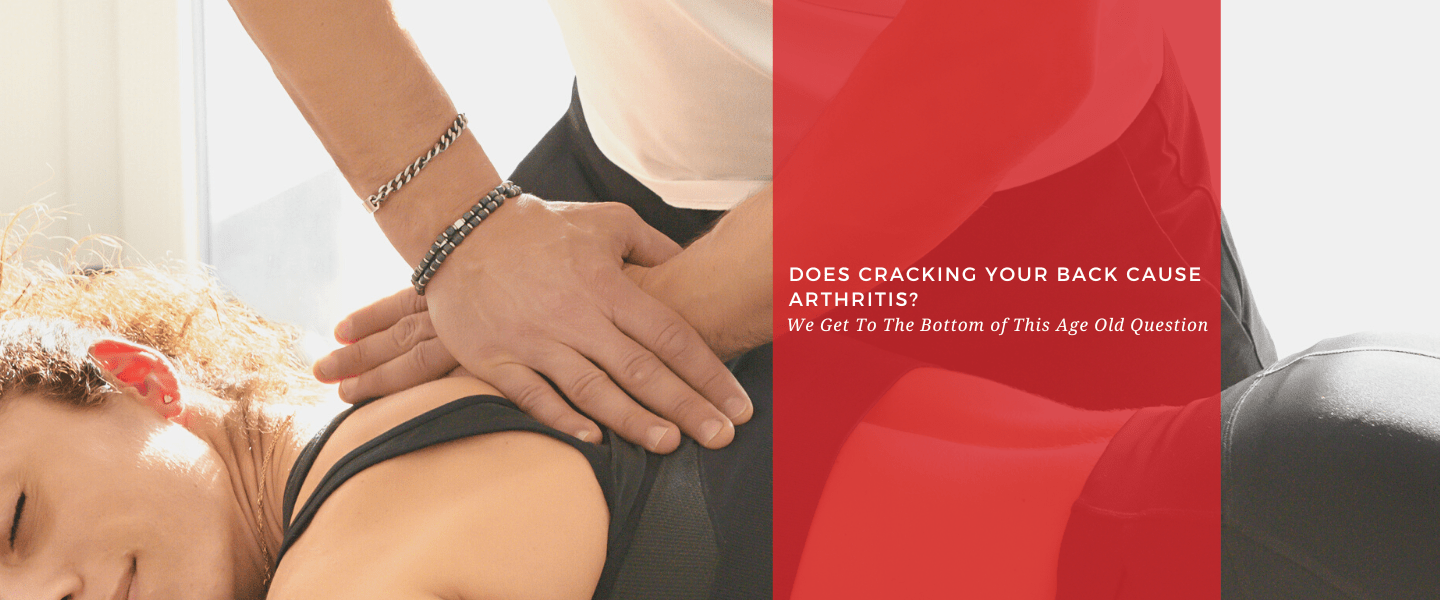With over 1 million orders

Does Cracking Your Back Cause Arthritis? We Get To The Bottom of This Age Old Question
In this article, we tackle the age-old question: Does cracking your back cause arthritis? The short answer is no, but doing it incorrectly or too often can lead to other health issues. Learn what happens when you 'crack' your back, why it feels good, and how to do it safely.
The audible pop of a cracked back can divide a room into two camps: those who find it satisfying and those who deem it unsettling. But beyond personal preferences, a critical question persists: Could this habit have long-term consequences like arthritis? In this article, we talk to medical experts to answer: does cracking your back cause arthritis?
What Makes The Popping Sound?
When you crack or pop your back, the technical term for it is "crepitus." The sound arises when gas bubbles trapped between joints are released. So, when you hear that crack, know that it's not your bones breaking or splintering.

Why Does It Feel Good?
The release of pressure can feel quite satisfying. Alongside this, endorphins are released around the area that's been adjusted, acting as natural pain relievers. This combination contributes to the pleasant sensation many people associate with back-cracking. Interestingly, some research suggests that this may also be a psychological relief, almost like a placebo effect, especially when the adjustment is done by a professional.
Can It Be Harmful?
Generally, cracking your back is considered safe. However, if done improperly, it can have some downsides:
- Pinched Nerves: Forceful or quick adjustments can pinch nerves, causing sharp pain and potential mobility issues.
- Muscle Strains: Overexerting while cracking your back can strain muscles around the spine, which may require medical treatment in severe cases.
- Ligament Stretching: Frequent cracking can lead to stretched back ligaments, increasing the risk of osteoarthritis in the long run.
- Vascular Injuries: Extreme cases could involve damage to the blood vessels running along your back, leading to complications like blood clots and even strokes.
When To Consult Professionals
If back-cracking is accompanied by pain, discomfort, or any other unusual symptoms, it's time to get professional advice. Even if the symptoms are mild, they could signal underlying issues that you might not be aware of. Healthcare providers can offer a variety of tests, such as X-rays and MRIs, to pinpoint the problem. In some cases, you might be referred to a specialist like an orthopedic surgeon or a rheumatologist for further evaluation and treatment. You may be asked to wear aids or tools like a posture corrector to help. If medications or other therapies are required, these professionals can guide you on the most appropriate and safe course of action.
How To Do It Safely
If you enjoy the relief that comes from cracking your back and want to continue doing it, take steps to ensure you're not causing harm. Controlled stretching is the safest method. Yoga and Pilates, when led by trained professionals, can provide a range of movements that safely stretch and adjust the back. They also help to improve your overall posture and core strength, reducing the likelihood of back pain in the future.
But you don't have to join a class or a gym to stretch your back safely. You can try simple stretches at home, such as the cat-cow stretch, the spinal twist, or the pelvic tilt, among others. Adding these stretches into your daily routine can not only give you that satisfying "pop" but also help with chronic back pain and increase your range of motion over time.
By taking these precautions, you can enjoy the satisfying relief that comes from back-cracking without compromising your health. But remember, if something doesn't feel right, consult with a healthcare provider for a thorough evaluation.

Does Cracking Your Back Cause Arthritis? The Takeaway
While cracking your back has not been definitively linked to arthritis, it's essential to proceed with caution. Doing it occasionally and in a controlled manner is usually fine, but excessive or forceful cracking can lead to other complications. If you're concerned about any symptoms, it's always best to consult with a healthcare provider.
For additional information on how cracking your back or other joints may affect you, take a look at our other relevant articles below:
Does Cracking Knuckles Cause Arthritis--Dr. Arthritis Answers
Can You Get Arthritis from Cracking Your Neck? --And Other Common Arthritis Myths
Does Popping Your Fingers Cause Arthritis? When Finger-Popping May Signal More
